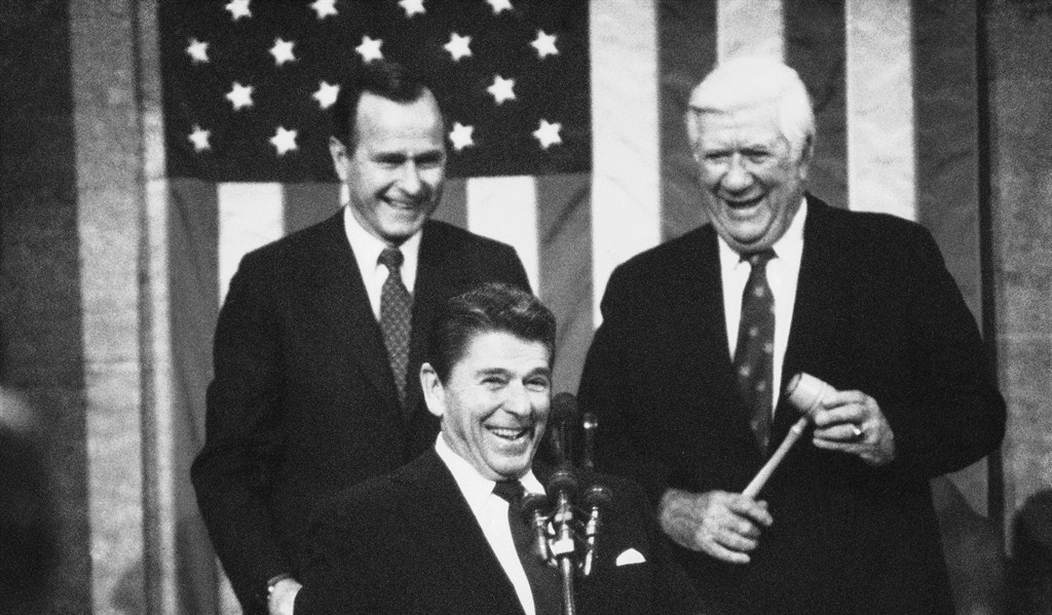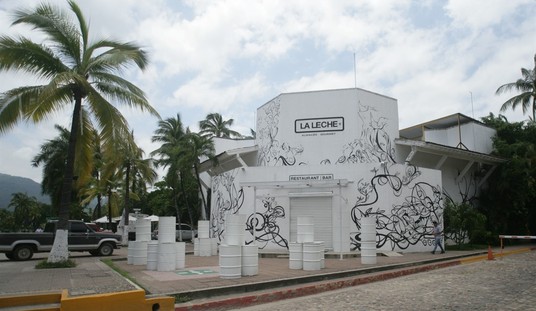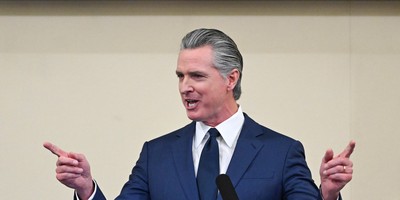The life of theologian Michael Novak is among the most storied in Post WWII history. Storied in the literal sense, in that he just has so many fascinating stories to tell. But also storied in that the narrative of his life tells the broader story of a very significant sub-set of the American people, the people who were once called the ‘Reagan Democrats’. I almost called them a sub-set of the American electorate, but electorate would have been the wrong word; they’re not just a political constituency and their story is not just a political story: it’s a cultural and a religious one as well. Michael didn’t just see it and live it, he participated in it at the highest levels as an advisor to the Kennedys, on through McCarthy and McGovern and eventually to friendship with Reagan, Thatcher, and John Paul II. If one wanted to understand the beginnings, rise, and eventual denouement of the cold war from the vantage point of the victors, then Writing From Left to Write by Michael Novak offers some of the best seats in the house.
I spent a delightful hour or so with Michael, a man who I’ve interviewed on and off for two decades for radio, via skype from my home near McKeesport, Pennsylvania — Michael’s childhood home. McKeesport, you may note, was the site of an Obama campaign stop shortly before he was caught on tape in San Francisco referring to people who ‘cling to God and guns’ as a response to economic distress.
Below you will find the first of several transcribed sections of our in-depth discussion. These have been edited for clarity.
Jerry Bowyer: “Hi, I’m Jerry Bowyer. Thank you for joining us. I really appreciate you taking the time to listen to this conversation with Michael Novak. Michael Novak is the author of numerous books, more than one have had a huge impact on my thinking, but I think The Spirit of Democratic Capitalism stands out as a volume that changed my mind and the minds of many other people. Now he’s written a book that is not so much an explication of abstract ideas, but more of a memoir [or] to some degree an autobiography from the standpoint of ideas. The book is called Writing from Left to Right: My Journey from Liberal to Conservative, and Michael Novak (the author of that book) is with us today. Thank you so much for joining us, Michael.”
Michael Novak: “I’m really glad to be with you. Always love to touch base with Western Pennsylvania and it just makes me feel at home.”
Recommended
Jerry: “Well, we could use your ideas here, because the story of Western Pennsylvania is largely a story of some of the ideas that you’ve spent a lifetime critiquing come to fruition. And that’s really what your book is about: your disenchantment with the left. First of all, let’s start with your enchantment… Why were you ever a man of the left?”
Michael: “Well, it came with my family. We were an immigrant family; steel workers, mine workers – and being fairly conservative culturally (although we didn’t think of it that way) but liberal and union-oriented. [We] also assumed skepticism of the unions because it wasn’t so easy for union members either, especially when they dissented and didn’t want to do certain things. But nonetheless, I would call it the sort of tough certain-left of the Democratic Party. I always tried to keep that in mind later in life, when the middle class suburban Democrats started to take over — the ‘constituency of conscience’ [is what] they called it in Eugene McCarthy’s times; the ‘Brie and Chablis set’ as they called it. I was a little bit more suspicious of that because of my upbringing in Johnstown and later McKeesport, but nonetheless I was on that side of the party.”
Jerry: “Has that latter set almost completely taken over the Democratic Party?”
Michael: “Yeah, if you mean the beginnings of what they call the New Left. The refusal to seat Mayor Daley, if you remember — I think that was the ’72 convention — which was a symbol of throwing out the labor unions and the city machines, and the party didn’t fare so well after that for quite a while and lost touch with ordinary people. It became the party of the glitterati, the movie stars, the lawyers, the lobbyists, the activists. It became a different party [of] highly educated [people from] the universities and so forth. And while I was highly educated, I had a suspicion about motives and where they were going and lust for power, and a real sadness at how they lost contact with people like my own folks. I used to think of my uncle who was a steel worker: gruff guy, tough guy, lost a finger – a lot of guys that worked in the Bethlehem Steel Company lost part of a limb or something like that. It was hard work and very hot work in those ovens. In any case, I surely wanted to be loyal to that part of the family too. I spent some years — including the period of writing The Rise of the Unmeltable Ethnics, [about the] rise of the immigrants, from eastern and southern Europe particularly, into prominence — working out the ideas of that book [and] trying hard to make a bridge between the more suburban political consultants I was meeting and the old base of the Democratic Party, the old strength of it in the northeast particularly.”
Jerry: “You know, I wonder to some degree whether or not that old base of the Democratic Party – you mention your uncle working for Bethlehem Steel, my grandfather also did and these sorts of people, the sort of people I grew up with, they weren’t well educated in the sense of [having] many degrees, but in many cases they were voluminous readers. They were well-read and thoughtful and intelligent, just not certified. Do you find that to be the case? That there’s a kind of working class thinking man?”
Michael: “There really was. You know, I think Dad was making three dollars a day at the time but their first purchase was Harvard Classics. That’s what they wanted to build the family around; that’s what they wanted in the center of the home.”
Jerry: “Right. They buy encyclopedias, they buy the Great Books series from the University of Chicago, or the Every Man series. That’s the type I grew up with. They really were thinkers, they just weren’t college graduates.”
Michael: “I used to half love [and] half be embarrassed by my father talking to college professors as I went to college, because he didn’t yield an inch, he wouldn’t back off, and he had some very definite ideas about the way the world was turning. I remember him arguing about how American cars were going to get – this is in the ‘50s with those big tailfins and all that – how American cars were going to have to get smaller and how more and more of the world was going to share in our benefits and that means some shrinking for us and overseas focus for us. That isn’t the way my professors were thinking at the time. So, I would be half embarrassed at his rough ways and on the other hand quite proud of the common sense he was using.”
Jerry: “So this center, this old center of the Democratic Party – your family, my family – they would be somewhat hawkish, in military terms.”
Michael: “Well, they were because you know, we had family in central Europe. I could more easily have become a democratic socialist or a social democrat if I didn’t have the memory of my family over there. And we were still in contact with them, though rarely (it was hard to get letters back and forth). But that was just a constant reminder over my head. I remember when I went to Harvard, Paul Tillich, the great theologian, saying that any serious Christian must be a socialist. Well, I couldn’t absorb that for several reasons, but one was the family and the other was that socialism seemed to me an idea that didn’t work. I tried to look at Socialist countries and there wasn’t one I could really admire – there were some, like Sweden, so I looked at pictures of Sweden as I was beginning to get more and more sour on socialism. [I] tried to hope that would spring up [and] make my heart beat hotter but it really didn’t, and so I gradually just discovered I really prefer capitalism. That’s the kind of world that made life much better for my family and for families all around the world. I couldn’t see any better way.”
To be continued…
____________________________________________________________
Mr. Bowyer is the author of "The Free Market Capitalists Survival Guide," published by HarperCollins, and a Forbes contributor. This article originally appeared at Forbes.com

























Join the conversation as a VIP Member